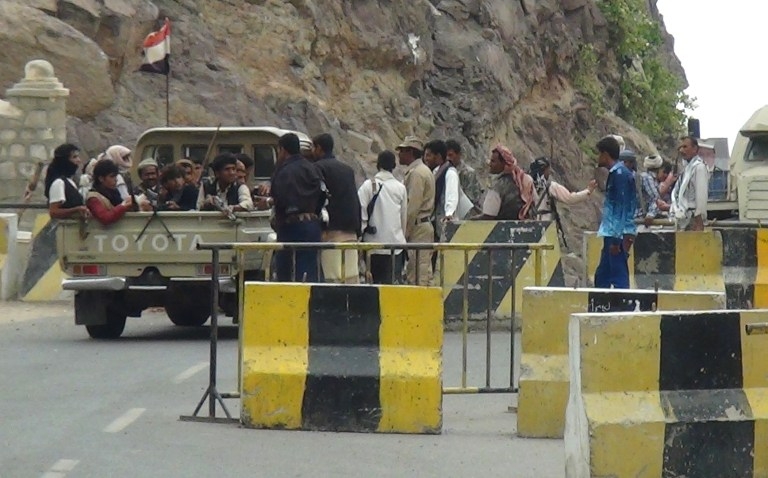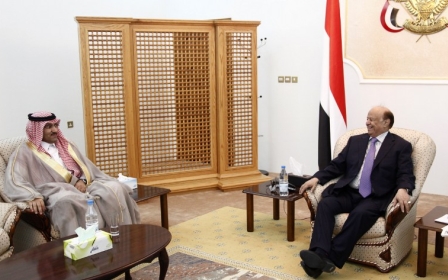Beleaguered Hadi says Aden Yemen 'capital'

Deposed Yemeni president Abd Rabbu Mansour Hadi, who fled to Aden after escaping from Houthi militia controlling Sanaa, considers the southern port city to be Yemen's capital, an aide said on Saturday.
But tensions were running high in Aden, as special forces suspected of links to the militia known as Houthis readied defences against an anticipated assault by Hadi loyalists.
"Aden became the capital of Yemen as soon as the Houthis occupied Sanaa," the aide quoted Hadi as saying in reference to their takeover of Sanaa several months ago.
Hadi also accused ex-president Ali Abdullah Saleh and the Houthis of links with Iran, and spoke of his escape from Sanaa and Houthi demands to integrate thousands of their militants into the army and police and secure top government posts.
His remarks about Aden reflect his determination to hold out against Houthi efforts to extend their influence but are purely symbolic because moving the capital requires a change to the constitution.
The special forces commander in Aden, Abdel Hafez al-Saqqaf, has defied a decree by Hadi sacking him and said he will only follow orders from the presidential council in Sanaa.
His men have cut roads leading to their headquarters near Aden's international airport and set up barricades, saying they fear an assault by the Popular Resistance Committees, loyal to Hadi.
Several Gulf states, led by Saudi Arabia, have already moved their embassies to Aden after an exodus of foreign diplomats from Sanaa in February over security concerns.
But the US, the first to close its mission in Sanaa, has said it will not do so although it continues to back Hadi.
Aden, the country's second largest city, was capital of a once independent south Yemen.
The Houthis named a "presidential council" after Hadi and Prime Minister Khalid Bahah tendered their resignations in January in protest at what critics branded an attempted coup.
After fleeing house arrest in Sanaa, Hadi resurfaced in Aden where he retracted his resignation. Bahah remains trapped in the capital.
Houthi demands
On Saturday, Hadi said he escaped his Sanaa residence through a tunnel linking it to the nearby house of one of his sons and travelled to Aden using back roads.
The Houthis overran Sanaa in September and have since exerted their influence over several other areas in the country.
The Shiite militia has long complained of marginalisation and fought the government between 2004 and February 2010.
They oppose a plan for a six-region federation, which Hadi hopes to implement, saying it would divide Yemen into rich and poor areas.
Hadi said Saturday the Houthis had demanded 135 top government jobs and the vice presidency for one of their leaders, Saleh al-Sammad.
They also demanded that 35,000 militiamen be integrated into the armed forces and 25,000 into the police.
Hadi accused Iran of links with the Houthis, saying 1,600 militia members are being trained in religious schools in the holy Iranian city of Qom.
He also accused Saleh, the veteran ex-president who was forced from power in 2012, of having urged Iran to persuade the Houthis to collaborate with him before they seized Sanaa.
The Gulf Cooperation Council, which continues to support Hadi, is ruled by Sunni Muslim are likely concerned that the Houthis will take Yemen into Shiite Iran's orbit.
New MEE newsletter: Jerusalem Dispatch
Sign up to get the latest insights and analysis on Israel-Palestine, alongside Turkey Unpacked and other MEE newsletters
Middle East Eye delivers independent and unrivalled coverage and analysis of the Middle East, North Africa and beyond. To learn more about republishing this content and the associated fees, please fill out this form. More about MEE can be found here.




